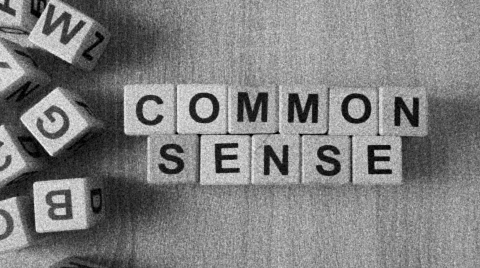Americans continue to wonder what has happened to our country. For example, we’ve gone from requiring parental permission for students to take an aspirin to school, to allowing them to change their genders without parental knowledge. From requiring immigrants to enter the country legally, to allowing them to enter illegally, making citizens pay for their support, and condemning as heartless those who support the law. From punishing males for entering females’ locker rooms, to inviting them to do so. From forbidding male competition with female athletes to endorsing such competition. And from supporting police for arresting criminals and protecting citizens, to defunding the police and protecting criminals.
Younger Americans tend to believe that these and other radical social changes have occurred suddenly and have yet to be explained. Actually, the changes have been building for decades and their causes have been known and warned about. I, for one, identified them over thirty years ago in Warning: Nonsense is Destroying America, published in 1994. That book argued that
America had been seduced by nonsense—that is, by several fundamental falsehoods that were embraced by influential people in communications and entertainment and became part of our culture.
Following are the kinds of nonsense I discussed in that book.
The falsehood that truth is personal, and we create it to meet our wishes. In fact, we do not create it, nor is it affected by our wishes. It corresponds with reality and must be searched for and discovered.
The falsehood that we are born wise and good and should therefore esteem ourselves, trust our ideas and beliefs, and defend them against challenges. In fact, not a single one of us is born wise and good. Those qualities must be gained by learning to distinguish truth from error, correcting our errors when they occur, and making these practices lifelong habits. Self-respect and self-confidence aid in these efforts; however self-esteem leads us to think that effort is unnecessary and should therefore be avoided.
The falsehood that feelings are a more trustworthy guide to belief and behavior than thinking and reasoning. In reality, feelings are capricious, and therefore may be accurate, wise, and helpful, or instead inaccurate, foolish, and harmful. The only way to know their value is to evaluate them by thought and reason. Thus, thinking and reasoning, though imperfect, are much better guides than feelings.
Here are some of the ways these three falsehoods continue to impact America.
Believing that we create our own truth diminishes our interest in learning from parents, teachers, and experts, including those in history and science. It also diminishes our curiosity and interest in other people’s viewpoints and causes disinterest in dialogue and debate. Equally significant, it disinterests us in other people’s views, and therefore makes meaningful exchange of ideas virtually impossible.
Believing that we are born wise and good and deserve esteem prevents us from examining our ideas for correctness. This fear increases when we encounter challenges to our views. In such cases, we are likely to condemn those who disagree with us as dishonest, prejudiced, and hateful, try to ban them from speaking, and shout them down when them manage to find an audience.
Believing that feelings are more trustworthy than reasoning causes us to think and act from emotion rather than careful thought—in other words, impetuously. This increases our chance of making mistakes. And our dependence on emotion is likely to make us feel right anyway, deny our mistakes, and refuse to apologize to those we offend. We also become vulnerable to manipulation by those who present our newscasts, write the books we read, or deliver the speeches we hear. Our feelings toward them will make us miss the biases, errors, and lies that thinking people could discern.
The nonsense mentioned at the beginning of this essay, and most of the other nonsense we encounter every day, can be traced to one, two, or all three of the falsehoods explained above that have permeated American culture for decades. That nonsense is likely to increase even more in the coming years. Our only hope is to join those who recognize the seriousness of the problem and are returning to the common sense that guided our predecessors.
Copyright © 2025 by Vincent Ryan Ruggiero. All rights reserved.






























